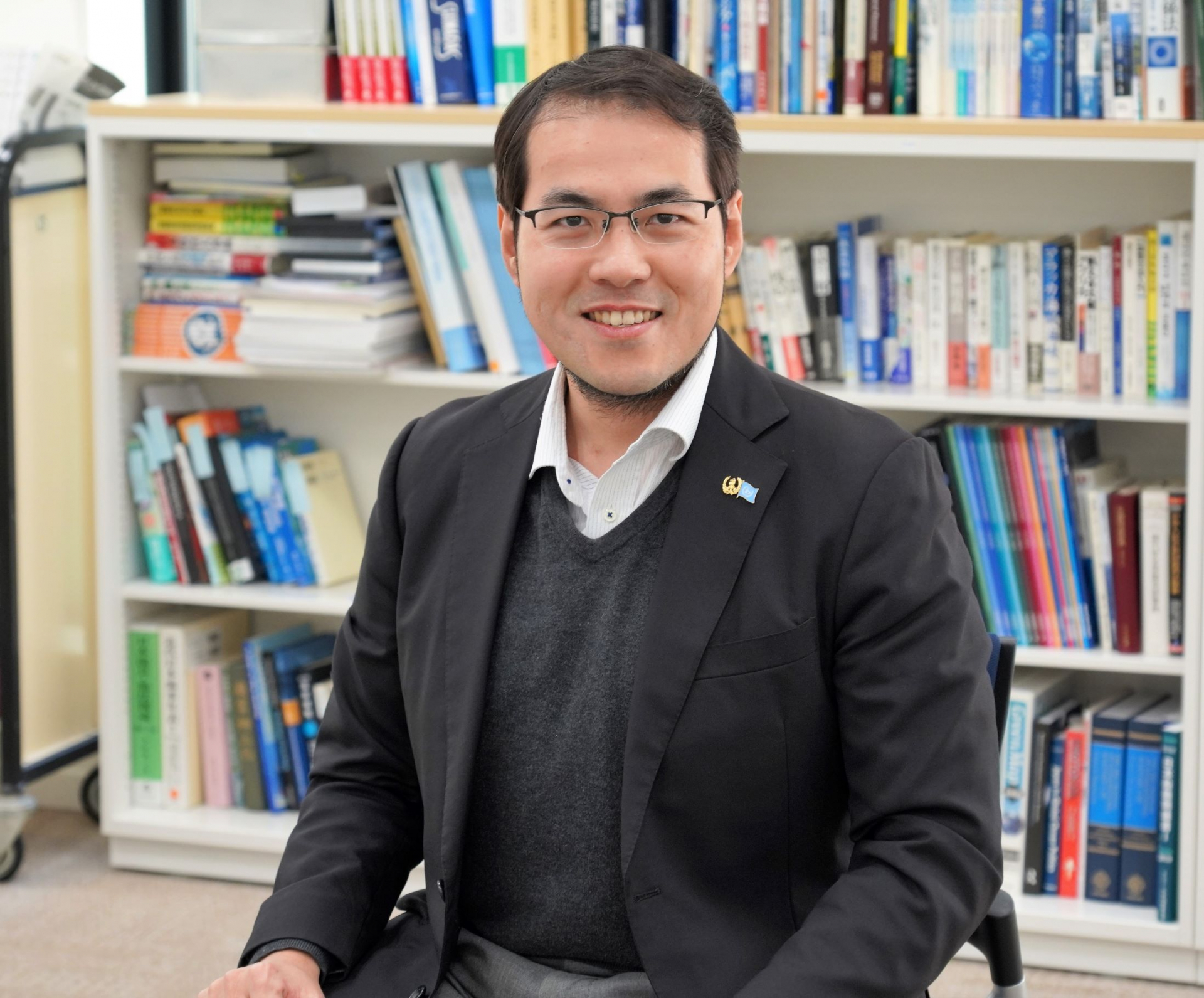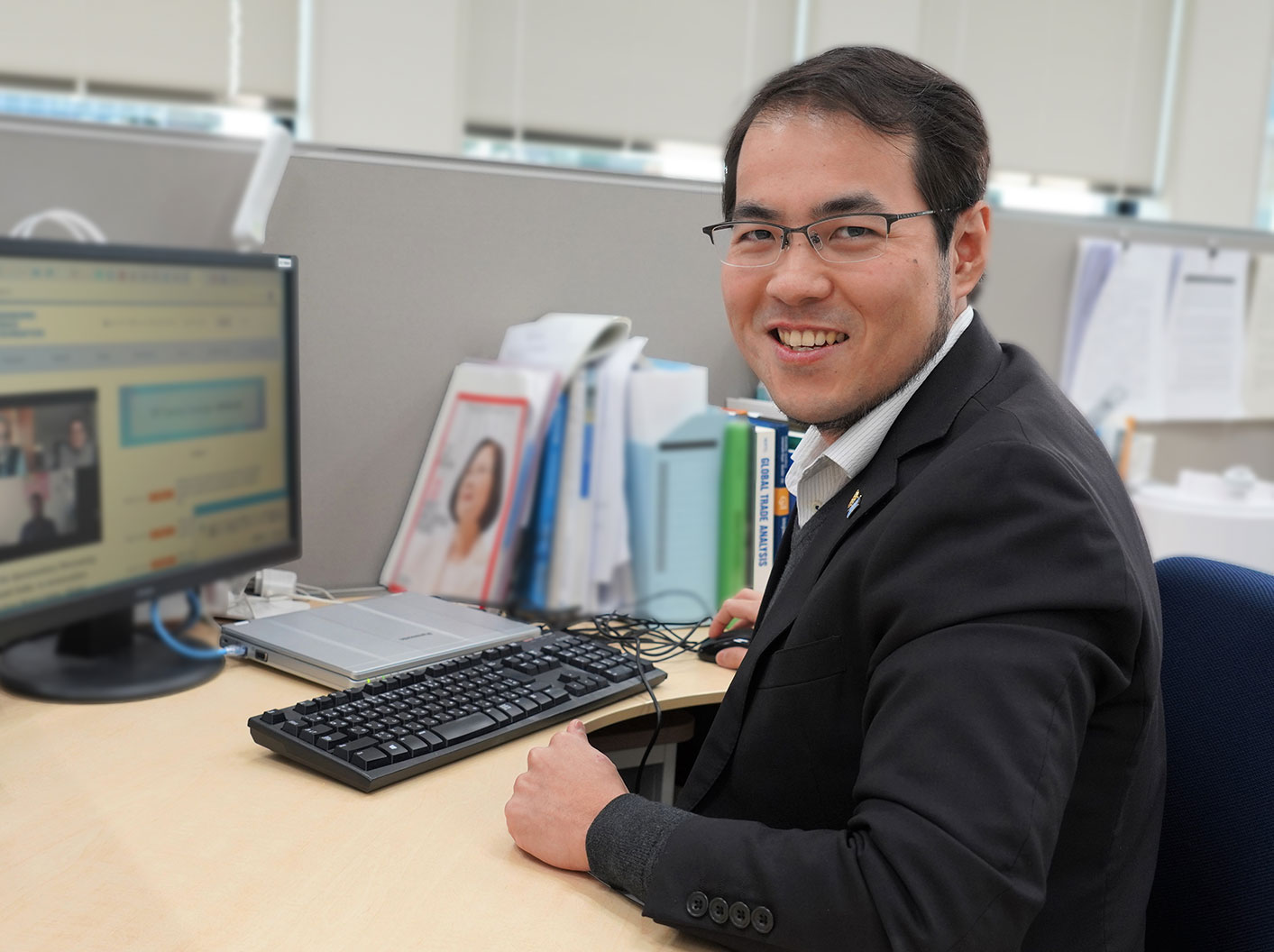■ What are your current duties?
I specialize in the fields of blue finance and the blue economy, so my work consists of carrying out quantitative analysis of ESG (Environmental, Social and Corporate Governance) and impact investments to formulate policy recommendations. More specifically, I prepare guidelines and policy recommendations for island states that require advice regarding how they can raise funds efficiently not only in pursuit of profits, but also for the purpose of environmental conservation through initiatives such as cultivating seaweed to reduce CO
2. I provide guidance particularly to developing countries regarding the amount of funds necessary, strategies for raising capital, and advice regarding negotiations with development banks for ocean development projects.
In 2019, I went on 20 international business trips, mainly to give presentations at numerous academic conferences and economic forums to boost awareness about blue finance. The Asia-Pacific Economic Cooperation (APEC) conference on ocean energy adopted the content from my presentation on the development of this financing method as one of their key recommendations. In 2020, the COVID-19 pandemic has kept me from traveling outside of Japan, but I have continued my academic collaboration online by compiling my experiences and the insights gained from previous business trips and publishing the findings in academic journals.
■ What are your expectations for SPF regarding diversity and inclusion?
OPRI, my department at SPF, is a truly international workplace. As much as 90% of communication within the research teams is conducted in English, making it easy for me to discuss potential research ideas and consult with my colleagues. I realize that I am overwhelmed with gratitude to be part of such a workplace.
In addition, OPRI is already full of diversity and I feel completely comfortable working here. Official announcements within our group are increasingly issued in both Japanese and English, and I am impressed with the evolution I see within the organization.
I hope that SPF can continue progress toward becoming an organization whereby all members feel they can make contributions to their workplace and society regardless of nationality or language. In addition, I believe that there should be more opportunities for everyone, regardless of rank or position, to freely share their ideas. Establishing a diverse and international work environment will deepen the insight and achievements of organizations such as SPF, providing future opportunities to engage in extensive debate and deliver knowledge to various sectors throughout the world.
I believe that initiatives of this kind are needed in the long term to bring sustainable solutions not only to SPF but also to the rest of the world.

